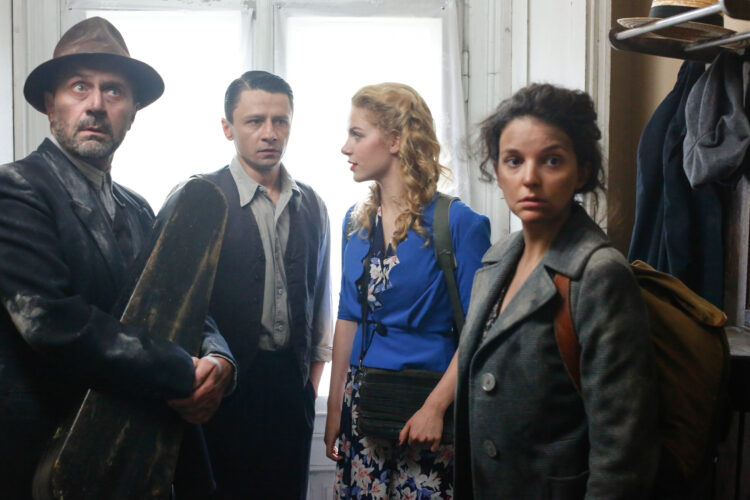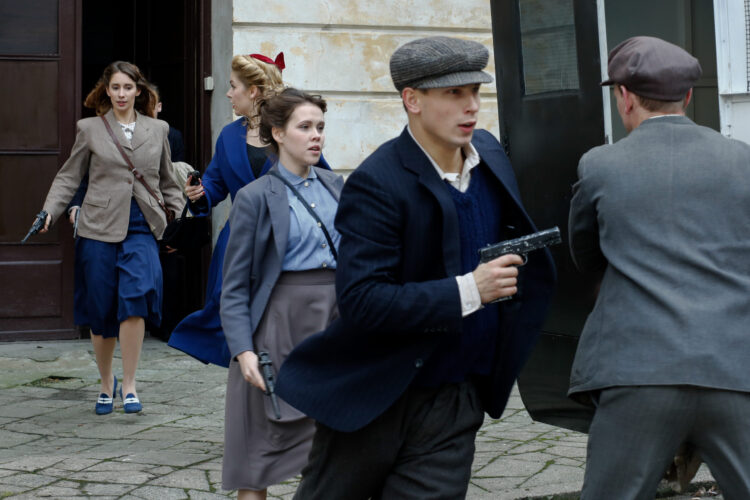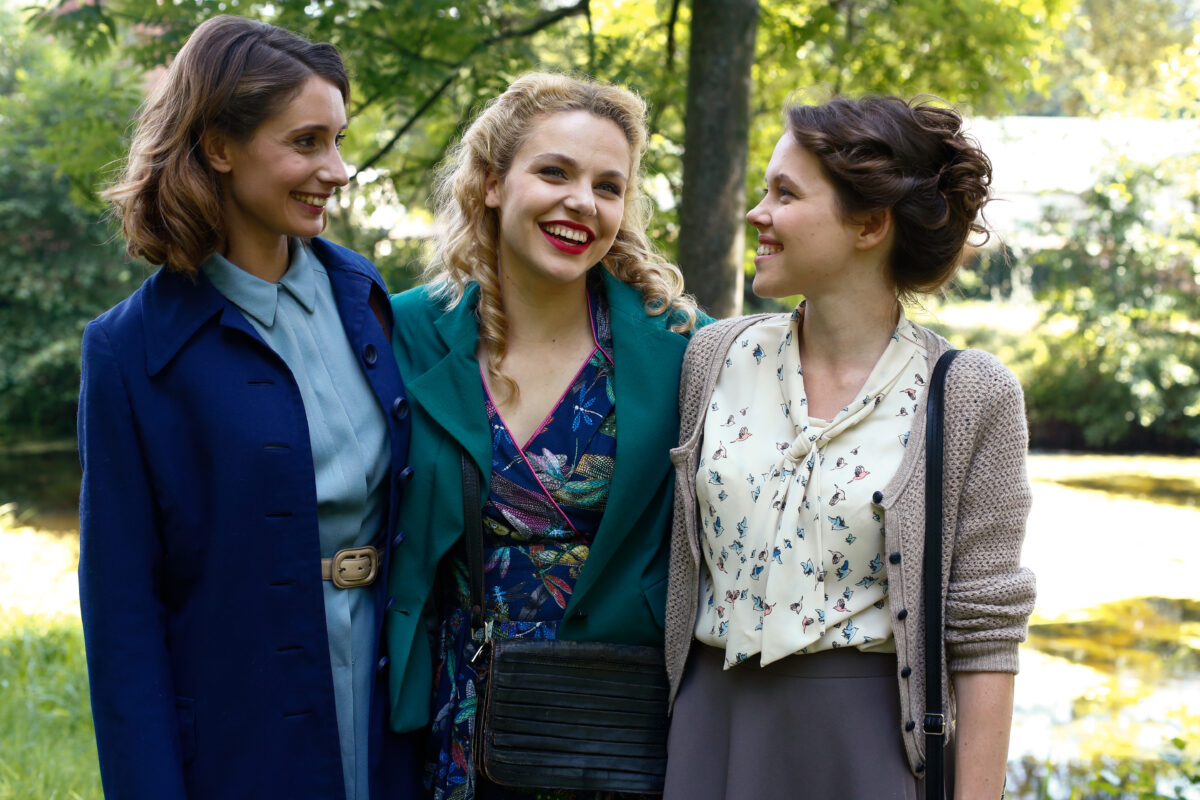The Polish TV series Wartime Girls is back for a second season on the ChaiFlicks Jewish streaming platform. This is good news because Michal Rogalski’s drama, set during the German occupation of Poland from 1939 to 1945, is compelling and entertaining, judging by the first four of 13 episodes.
Three characters, all young women from completely different backgrounds, dominate the proceedings.
Irka (Marta Mazurek) is a nurse from a solid middle-class background. Ewa (Vanessa Aleksander) is a petty thief who reforms herself. Marysia (Aleksandra Pissula) is a violinist from a cultured family. Irka and Ewa, both from Warsaw, are Catholics. Marysia, from Lodz, is Jewish. They meet under abnormal circumstances, bond and join a Polish underground resistance organization battling the Nazis.
Polish-Jewish relations during that dark period are tenuous at best, but Irka and Ewa exemplify the best of Poland. They are humane, compassionate and tolerant, helping Marysia, her father (Dariusz Majchrzak) and sister (Maria Debska) through harrowing times after they leave the Lodz ghetto and find sanctuary on the “Aryan” side of Warsaw.

The series, distinguished by high production values, does not wear blinkers. It acknowledges the unpalatable truth that some Poles, particularly those of German ancestry, could be opportunistic, endemically antisemitic and eager to betray Jews to the Germans.
The second season of Wartime Girls, featuring a Polish and a German cast whose performers acquit themselves with aplomb, unfolds in what appears to be the third year of World War II, when cracks in Germany’s armor began to appear, thereby emboldening Polish resisters.
Irka, Ewa and Marysia are dedicated members of the underground movement, carrying out periodic acts of sabotage against the Germans. They are not squeamish about using violence to silence their enemies.They report to Irka’s older brother, Witek (Michal Czernecki), a man of substance who falls in love with Ewa, a spunky and audacious operative.
As the first episode of the new season opens, tensions flare. A German officer is beating Marysia, who has been operating under an assumed name and a new identity. In the countryside, Witek and Ewa lay sticks of dynamite on a railway track.
Marysia’s father, tired of running from the Nazis, has fallen into a state of despair and wants to return to the ghetto. His daughter, Zosia, remains strong and resilient. Having learned his wife has been sent to Auschwitz, he agrees in desperation to cooperate with the Germans.
In another subplot, Irka’s fiancé, Kamil, suddenly turns up after a long disappearance. A soldier, he vanished during the first days of the German invasion of Poland. Kamil, having apparently lost his memory, pretends not to know her and claims to be another person, but Irka is convinced he is fibbing.
Thanks to Andrzej (Sebastian Jasnoch), a kind-hearted physician, Marysia is freed from German captivity. He finds her shelter in a woman’s flat, but her jealous daughter threatens to upend the arrangement. She’s in love with Andrzej, but he is attracted to Marysia.
Margarethe (Katrin Buhring), a zealous German spy based in Warsaw, is hot on Marysia’s heels. Marysia, in the meantime, finds a job as a waitress in a hotel managed by Germans. Her mission is to intoxicate a high-ranking German army officer privy to sensitive information.

Marysia’s boss, a fanatic Nazi who thinks he can recognize Jews by the shape of their skulls, pronounces her a “full-blooded Aryan” who deserves German citizenship. His so-called expertise is ridiculous beyond belief.
Wartime Girls hums along at a pleasing pace, offering viewers a bird’s eye view of Poland under the heel of Nazi oppressors.
